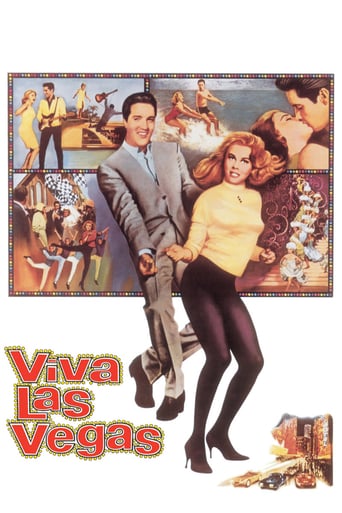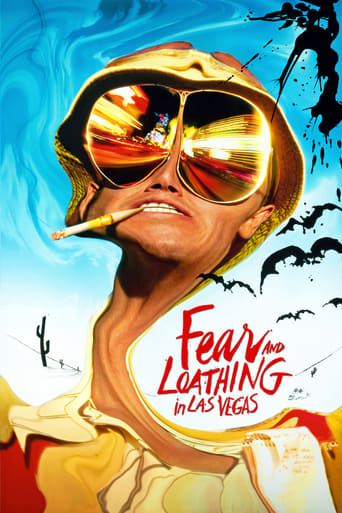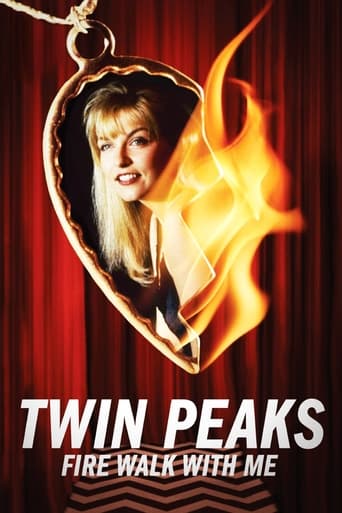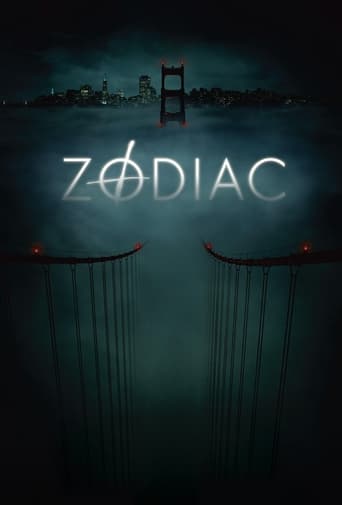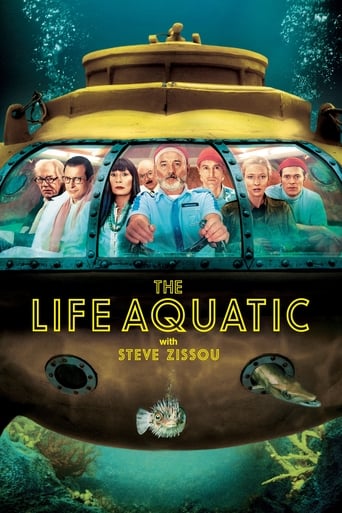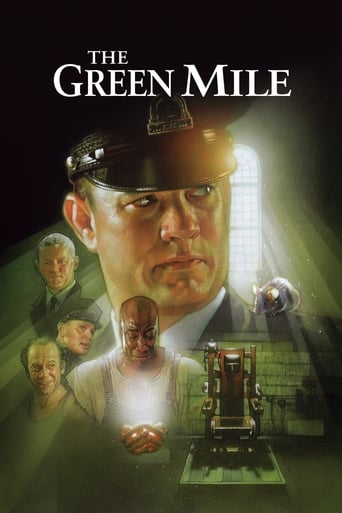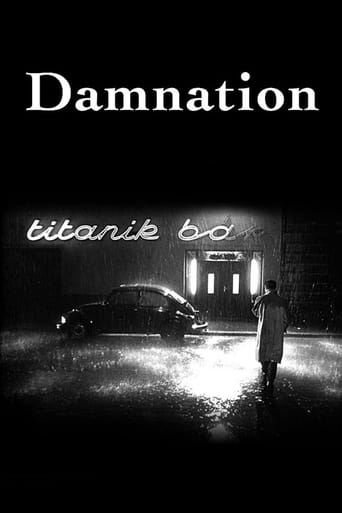
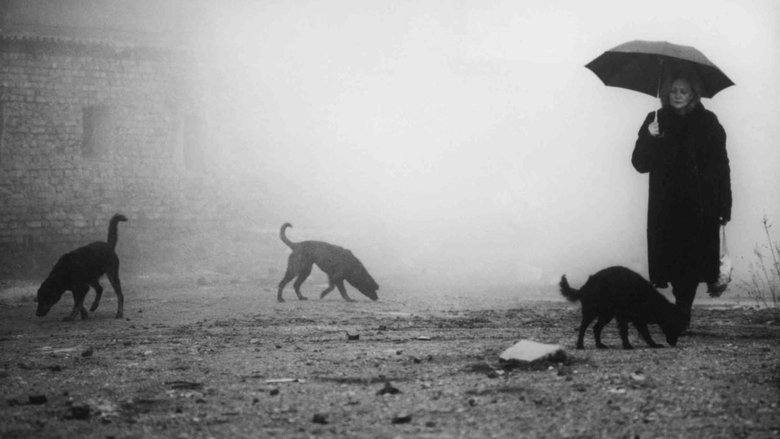
Damnation (1988)
Karrer plods his way through life in quiet desperation. His environment is drab and rainy and muddy. Eaten up with solitude, his hopelessness would be incurable but for the existence of the Titanik Bar and its beautiful, haunting singer. But the lady is married and Karrer is determined to keep her husband away...
Watch Trailer
Cast


Similar titles
Reviews
Self-important, over-dramatic, uninspired.
It's a mild crowd pleaser for people who are exhausted by blockbusters.
Just intense enough to provide a much-needed diversion, just lightweight enough to make you forget about it soon after it’s over. It’s not exactly “good,” per se, but it does what it sets out to do in terms of putting us on edge, which makes it … successful?
One of the most extraordinary films you will see this year. Take that as you want.
If only there was an Academy Award for Best Use of Ore Carts, Béla Tarr would be the proud owner of an Oscar for Damnation. There is simply no other film whose depiction of ore carts holds a candle to Tarr's masterful portrayal of dozens of carts suspended on a cable, traversing the landscape and incessantly gazing down upon a small Hungarian town.Some industry insiders say the Academy may have been convinced to create the award had the mining community rallied behind the film. But at the time, Hungarian miners thought it was more important to jump on the "revolt against the Soviets" bandwagon than to lobby for increased recognition of the mining implements so long unappreciated by the Hollywood establishment.Naysayers claim the Academy would not have given in to public pressure, citing the animal welfare community's failed campaign in support of a proposed Oscar for Best Performance by Stray Dogs, which experts agree would have been easily won by Damnation and its motley pack of canines.However, it is generally believed that this was not a reflection of an aversion to expanded award offerings, but a result of the powers that be buying into the notion that because Hungary was a communist country when Damnation was filmed, the dogs featured in the film were not unwanted strays, but the people's dogs, owned and loved by millions, and therefore not sufficiently disadvantaged to merit special honors.Other proposed awards that garnered significant grass roots support include Oscars for Most Atmospheric Droning, Best Poorly Synched Music, and Original Use of Indoor Campfire, as well as a Guinness Record for Most Rain Per Minute Filmed, none of which ultimately came to be.But of all the awards not awarded, the Oscar for Best Use of Ore Carts is the one that will stand out in people's minds when they inevitably recall the ever-vigilant unsung heroes of one of the wettest land-based films ever made. If that makes Damnation sound like an uncommon sort of movie living in its own cinematic world that most filmmakers never visit, that's because it is, and that's a good thing.
Damnation (1988) **** Although he made a number of feature films previous to Damnation, this is where Bela Tarr found his trademark style. It was also his first collaboration with novelist and country man Laszlo Krasznahorkai; a collaboration which continues to this day.The film opens with now trademark Tarr style, watching mining carts travel along with their loads for a few minutes (yes minutes). The camera slowly pulls back to reveal Karrer (Miklós Székely) shaving. He's a lonely loser, slowly drinking himself to death at the Titanik Bar. He is in love with and sleeping with the lounge singer there (Vali Kerekes). The problem, however, is that she is married, and has made no secret of wanting to end their affair. That when he asks her why she doesn't love him, and she replies "I love you and you know it," is of no real matter to her.Karrer is offered a smuggling job by the bar's shady owner. He decides to offer the job to the singer's husband, who has built up a substantial debt and is in danger of being imprisoned for it. He accepts, and Karrer wins himself three days to swoon the singer. She denies him, nevertheless sleeping with him in perhaps the least passionate sex scene ever filmed. A bitter Karrer decides he will turn in to the authorities her husband when he returns from his smuggling job, leaving her alone and thus making him now the logical option. By the end, the lives of Damnation's characters will be as broken and desolate as the crumbling town in which they live.Damnation plays as love triangle, grounded out over nearly two hours. Tarr's long shots and elegantly bleak black and white photography follows ever so slowly the action. The lighting is impeccable, creating ghostly silhouettes, dusty and dim barrooms, and elegant and shimmering light bouncing of the face and hair of the lounge singer. As characteristic of Bela Tarr, the cinematography is stately and assured, breathtaking and deliberate. He films his characters and their town as assuredly and respectfully as possible. The town, and the dogs which walk its streets, hint at the apocalyptic undertones of the film, and transcends all emotions, or lack there of.I have had reservations about Damnation in the past, confident that it was film-making at its very best, sublimely atmospheric and tonal, but unsure whether or not just how well it worked, particularly in relation to Tarr's two formidable masterpieces, Satantango and Werckmeister Harmonies. Those films have something mammoth and intimidating about them: Satantango, with its titanic length, clocking in at over 7 hours, all in the same style and minimal narrative; Werckmeister Harmonies with its bizarre metaphysical underpinnings and suggestive philosophy. Those films have a ground out dreamlike or perhaps nightmarish quality to them, particular Werckmeister Harmonies. After my fourth of fifth viewing of Damnation, I'm now assured that it does in fact work particularly when you avoid getting hung up on Tarr's other films. I'm also assured of its greatness. Damnation is a masterpiece of film-making. It draws parallels with the Italian realist films of the 50s and early 60s, as well as the minimalist transcendentalism of the films of Robert Bresson, but all the while invoking a dreamlike quality that keeps the viewer removed at just the right distance for a gritty but transcendent experience.
The film demonstrates in the most eloquent manner how much colour one canbe found on black and white film emulsion. Béla Tarr and Gábor Medvigy hiscinematographer, tell the simple story in a sequence of very long shots, that are seemingly very realistic. The apparent realism in the film is spread into thin layers of detailed information in the composition of each frame, and add up to a full cinematic view on reality. Each shot tells a story, that relates not only to the characters and the plot, but mainly correspond with thoughts and ideas of adifferent plot the visual plot. The visual delivery of the plot, so it seems, is more important then the plot itself. In one shot we can see a wide lens close up, lit with meticulous attention to every hair lock on the actress' head, develop into a panning shot of a crowd in the foreground and the hero in the background (in focus!), when each of theevents is lit in a different way so the audience would be able to tell the hero from the crowd, and each character is lit to his personal lighting theme. GáborMedvigy uses light like Ennio Morricone uses music.
...I think most people would be inclined to walk out. I might myself in a different mood. If the somnambulist from "The Cabinet of Dr. Caligari" made a movie, it would be something like this: sloooooooow, droooooooowsy, like roaming a rainy city by night, stopping for a while in an empty, smoky bar, though it doesn't matter whether you're inside or out, sitting or walking, asleep or awake, it's all the same. If you've ever been in that state and would care to see it reproduced in a film, this is that film, but I doubt whether it means much more.It certainly doesn't describe damnation. Sleepwalking in a mental and moral stupor makes a good metaphor for life, but surely it applies to the saved as well as the damned? This film is always stepping in and out of self-parody: we get the point of every shot and every speech in about one-sixth the time allowed; we can predict whenever a dog--the same dog?--is about to skulk into frame to cross the dreary street or the dreary waste; and the first of the lyric interludes that punctuate the story is a one-note, narcoleptic, androgynous chanson that sounds like Dietrich on Valium.The same director's "Satantango" opens with a ten-minute shot of cows coming out of a barn in the morning and dispersing through the barnyard. The film is seven hours long. I'm not pure enough in spirit for that, but this one I can about manage.






